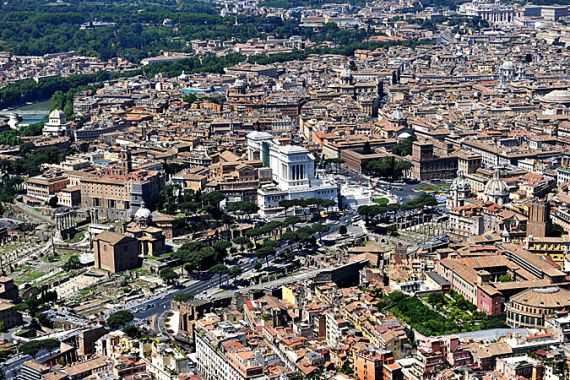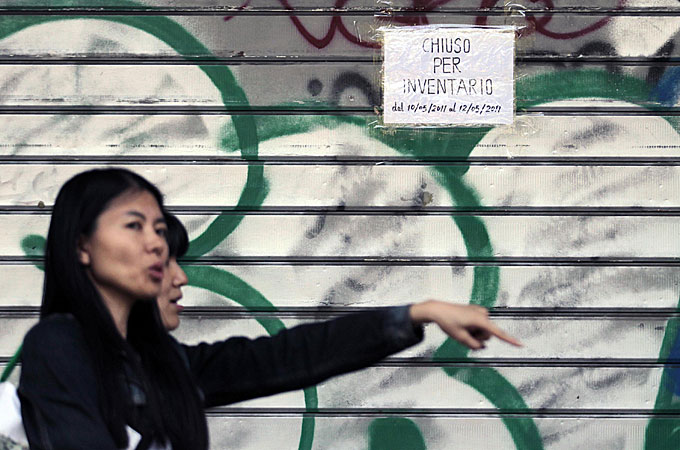Italians ‘flee Rome’ over quake rumours
Many flee the capital following reported prediction that a major earthquake would hit the capital.

 |
| Most shops in Rome’s Chinese district were shut possibly due to fears over the rumour [Reuters] |
Internet-fuelled rumours that a major earthquake would strike Rome, the Italian capital, has caused some residents to flee in panic, media have reported.
According to an Italian consumer group, some 20 per cent of the city’s workforce did not show up on Wednesday and hotels outside the capital reported higher than usual bookings.
Keep reading
list of 4 itemsPalestinian Prisoner’s Day: How many are still in Israeli detention?
‘Mama we’re dying’: Only able to hear her kids in Gaza in their final days
Europe pledges to boost aid to Sudan on unwelcome war anniversary
Traffic on the usually busy Rome streets was also said to be quieter than usual and many store fronts, particularly in the Chinese quarter, were shuttered.
“They have all gone away because they are scared of the earthquake,” Shouman, a Bangladeshi street seller who normally receives his cheap goods from a Chinese salesman, told the Reuters news agency.
The rumour was sparked by a faction of followers of Raffaele Bendandi, a self-taught seisomologist who predicted that a “big one” would hit Rome on May 11, 2011, based on the position of the planets.
Bendandi, who died in 1979, believed earthquakes were the result of the combined movements of the planets, the moon and the sun and were perfectly predictable.
However, Paola Lagorio, president of the association in charge of Bendandi’s documentation, says there is no evidence he ever made such a precise prediction.
The majority of Romans were sceptical, with some laughing off the rumours.
“Nothing is going to happen,” delivery man Vittorio Giansanti said, giggling as he went about his normal work in the Piazza Vittorio neighbourhood.
Italian officials took measures to quell the fears over the rumour, with the Civil Protection department posting a statement on its website that quakes cannot be predicted and that Rome was not at any major risk.
Toll-free numbers were also set aside at city hall to field questions.
On average, there are 30 earthquakes registered every day in Italy, according to the National Institute of Geophysics and Vulcanology.
Rome, however, has only a moderate seismic risk compared to more volatile regions in the Apennine mountains.